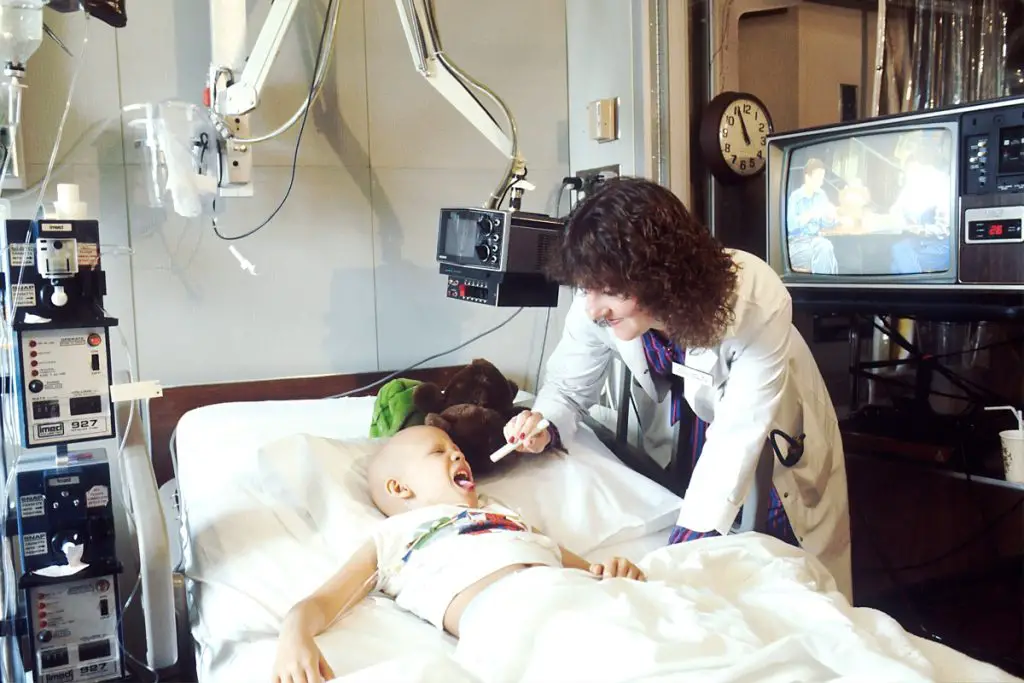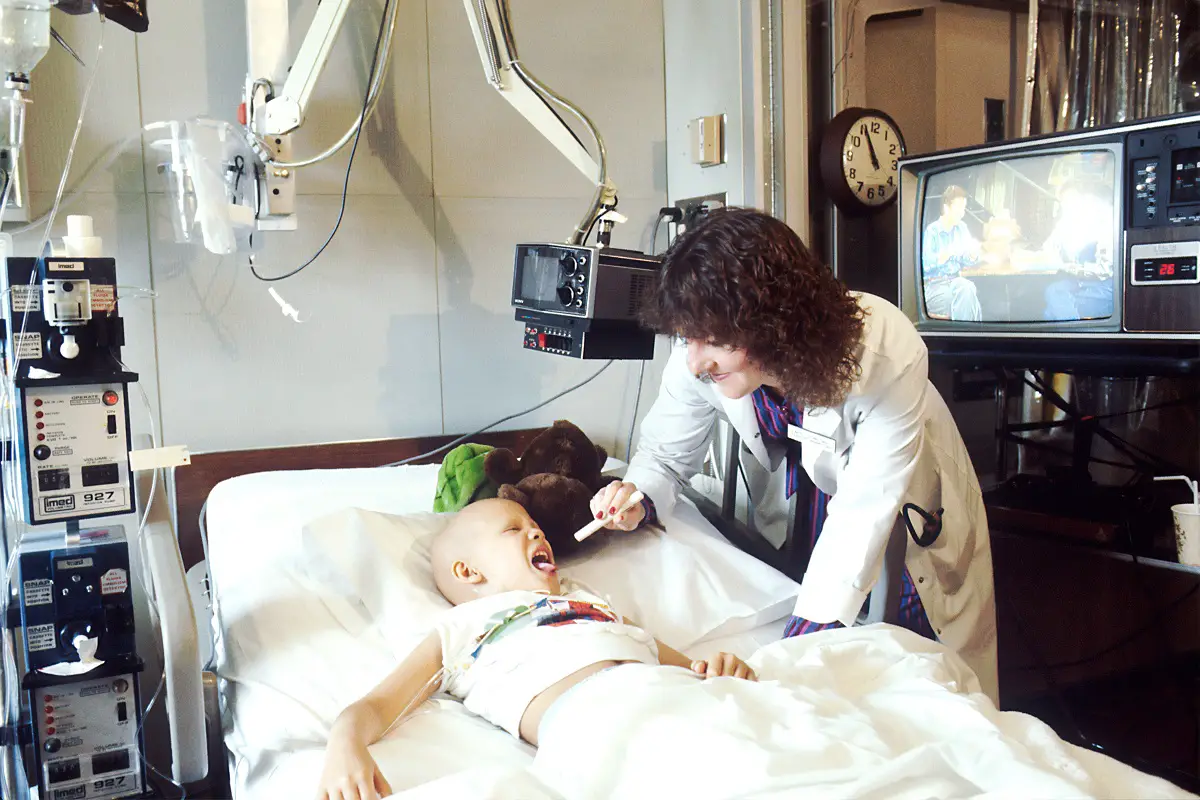
Are you considering a career as a pediatric nurse? If you love working with children, then managing and optimizing their health might be your dream vocation. Pediatric nurses are in high demand in Canada and worldwide, so you’ll always be able to find work.
Pediatric nurses have specialized skills, knowledge, and expertise to assist with children’s healthcare in all stages of development, from infancy to adolescence.
Understanding a pediatric nurse’s educational requirements, qualifications, responsibilities, and salary help you determine if this career aligns with your professional and career goals.
This post will discuss everything you need to know about becoming a pediatric nurse.
What Is a Pediatric Nurse?
The pediatric nurse is a health care professional providing medical care for children. They’re often part of a medical team consisting of pediatricians, pediatric surgeons, and other specialists in children’s healthcare.
Since they work with young people, pediatric nurses must have strong communication skills and the ability to work with children in a demanding environment. They must know how to capture and hold children’s attention and relate to them on their level.
The pediatric nurse also needs strong communication skills to explain procedures and outcomes to parents. Some pediatric nurses operate in triage, performing minor medical services on kids with acute injuries or illnesses.
Others operate in pediatric intensive care units caring for young patients with severe injuries, disabilities, or illnesses. Or they’ll collaborate with primary care pediatricians to ensure child wellness and health.
How Do You Become a Pediatric Nurse?

Becoming a pediatric nurse requires an academic career focusing on optimizing children’s health. It’s a long road to success with this occupation, and you’ll need to take the following steps to qualify for your vocation.
Take Relevant Courses In High School
Your high school career should focus on sciences and mathematics. You’ll need subjects like biology, pre-calculus, physics, statistics, and chemistry to position you for acceptance to the university and medical school after graduating.
If you’ve already completed high school, consider taking continuing education classes to improve your chances of admission into nursing degree programs at university.
Graduate University With a Degree in Nursing
The first step in becoming a pediatric nurse is to receive a Registered Nurse (RN) qualification from a university. You’ll achieve this by enrolling, graduating from an accredited nursing program, and obtaining your bachelor’s degree or diploma in nursing.
Some territories and provinces in Canada require RNs to obtain a bachelor’s degree. Therefore, it’s essential to research regulations in your prospective practice locations before deciding on the type of nursing certification you need to pursue.
Take The Licensing Exam
After receiving your diploma or degree, the next step is to enroll for the National Council Licensure Examination (NCLEX) for registered nurses. After successfully completing this exam, you’ll receive your nursing license.
You’ll need to check for further requirements about your licensing, depending on the prospective territory or province you want to practice in.
Complete Your Internship
Gaining work experience as a registered nurse is the final step to becoming a pediatric nurse. The best internship opportunities are typically in pediatric departments with hospitals or physician’s offices specializing in treating children.
Most pediatric internships last between five to 12 weeks. During your work experience, you’ll also attend classroom training alongside your practical experience.
What Skills Do Pediatric Nurses Need?
Pediatric nurses require various vital skills to qualify and succeed in their work. They must be able to stay calm in intense workplace environments and possess excellent communication skills to converse with children and adults.
It’s also beneficial for pediatric nurses to possess personal characteristics enabling them to engage with patients, providing them with a high level of relatability, understanding, and compassion for their situation. Nurses with empathy and sensibility personality traits do well on the job.
However, pediatric nurses must also be responsible, emotionally stable, and grounded to succeed in their vocation. It’s vital they can disconnect their work life from their personal life.
In some cases, they may have to deliver bad news to parents regarding their child’s health, and they need the strength to deal with parents’ adverse responses to this news.
What Work Conditions Can You Expect As a Pediatric Nurse?

Pediatric nurses work in various settings, from hospitals to clinics and private practices. Their skills are in high demand wherever children receive specialized and routine care.
Some typical work conditions for pediatric nurses include standing on their feet and walking around for long periods, critical thinking skills for making important healthcare decisions, working long hours, and managing their stressors.
Being a pediatric nurse is demanding, and many work up to 18-hour days, sometimes seven days a week. You’ll need conviction and passion for your work if you want to succeed and make it through the high demands on your time and psyche.
Aspiring pediatric nurses must develop the following skills to ensure success in this demanding vocation.
- Perform routine medical duties regarding child development screening and well-care visits.
- Diagnose and treat childhood illnesses.
- Offer practical and accurate guidance to parents on child healthcare and safety.
- Providing blood draws and immunizations.
- Conduct physical examinations for sports activities and schools.
Some nurses involved in specialized acute care will have additional responsibilities and require the following skills.
- Caring for severely injured or chronically ill children.
- Performing thorough physical examinations for underlying medical issues.
- Conduct and interpret lab results to assist the physician in coming to a diagnosis.
- Perform therapy and administrate medication for children under their care.
Skill Sets Of Pediatric Nurses
Pediatric nurses require a collection of “hard” and “soft” skills for a successful career. We define soft skills as personality traits and behaviors influencing job performance, such as communication and organization.
In contrast, we define hard skills as those abilities requiring developed expertise or technical knowledge surrounding their work. For instance, tasks such as updating medical records or administering medications.
Here are a few further examples of hard and soft skills required by pediatric nurses in their profession.
Knowledge Of Health Care
The pediatric nurse must possess in-depth knowledge surrounding several child health care topics. For instance, pediatric nurses must understand how to effectively administer safe dosages of medications to children and know how to minimize side effects.
Empathy
Pediatric nurses require a significant ability to generate empathy for parents and children. They also need to understand their place in the medical team and how they fit into the purpose of child health care.
During their career, pediatric nurses may encounter families and children experiencing various medical challenges. Having empathy and patience for patients help them provide personalized and compassionate care for their patients.
Teamwork
Many pediatric nurses work as a component of a pediatric care team. They collaborate with doctors, medical assistants, fellow nurses, and other healthcare professionals.
Therefore, it’s vital that nurse has effective teamwork skills, such as negotiation and active listening, allowing them to interact effectively with others.
Health And Safety Procedures
Pediatric nurses understand how to recommend optimal health and safety practices, minimize the potential spread of diseases, protecting the health of children, parents, and their fellow team members.
What Is The Career Outlook For Pediatric Nurses?

If we look to the future, pediatric nursing continues to be in high demand in the medical community in Canada and worldwide. The aging population and impending nursing shortage in all countries leave plenty of job prospects for qualified and certified pediatric nurses.
According to the American BLS, nurse job openings will see a 9% growth rate in the United States over the next ten years, and we can expect similar figures for Canada and the UK. Specialty positions in nursing, such as pediatrics, add to the demand and job security for this vocation.
Additionally, pediatric nurses are highly sought after by employers like children’s hospitals and other specialty pediatric healthcare organizations.
So, ensuring you have specialized skills ensures you have more job security in the coming years. Pediatric specialization also provides an avenue to travel nursing jobs.
What Specialties Can Pediatric Nurses Pursue?
Pediatric nurses operate across four categories. Let’s unpack them in greater detail to give you more information on the right choice for your career.
Neonatal Nursing Care
Neonatal nursing is a specialist branch of pediatric nursing caring for and supporting premature infants or those born with health issues, such as congenital infections, disabilities, or heart problems. Most neonatal nurses work in hospitals’ neonatal intensive care units (NICU).
Direct Nursing Care
This branch of pediatric nursing involves a registered nurse working out of a hospital or doctor’s office. They provide routine health checkups for children. The primary role of the pediatric RN is to administer the required care to the nursing care plan for the patient.
Palliative Pediatric Nursing Care
This branch of pediatric nursing cares for terminally ill children. They assist with relieving suffering and pain, ensuring the highest quality care during the child’s life and death and the family’s grieving process.
Palliative pediatric nurses receive training methodologies for compassionately discussing a child’s death and effectively communicating the child’s condition to their family.
Developmental Disability Nursing Care
This branch of pediatric nursing provides specialized care for children with developmental and mental disabilities affecting their learning ability and performing basic life skills. They work with children with Down syndrome, Rett syndrome, autism, and Asperger’s syndrome.
Average Pediatric Nurse Salary Canada
So, what can you expect to earn as a pediatric nurse in Canada? Pediatric nursing is a specialty branch of medicine, and you can expect good compensation for your skills and time, regardless of the setting you choose to work in.
However, salaries can vary widely, depending on your province and the area where you work. For instance, jobs in city centers will pay more than those in rural communities. The reason for the disparity in pay comes from the higher cost of living in the city, as well as the more expensive demand for services.
If you work in rural communities, you have fewer people around, and you won’t have the same demands on your time as those professionals working in a high-populace urban area. Also, nurses working in private schools will likely earn more than those working in a children’s hospital.
Despite the variations in working conditions, the average salary for a pediatric nurse is approximately $90,495 (CAD) per year. The average hourly rate for the profession is $43.51 (CAD) per hour, and most pediatric nurses can expect an annual bonus of $1,475 (CAD).
Pediatric Nursing FAQ
Q: Where Does a Pediatric Nurses Work?
A: The pediatric nurse works in locations in cities, suburbs, or rural areas. Here are some of the common working environments for pediatric nurses.
- Children’s hospitals.
- Children’s medical centers.
- Doctors’ offices.
- Outpatient facilities.
- Schools.
Q: Is It Challenging To Become a Pediatric Nurse?
A: Being a pediatric nurse is a challenging but rewarding medical career. However, aspiring nurses must go through extensive education and training to qualify for the position. However, most pediatric nurses find the requirements worthwhile, and they receive a demanding career with high levels of job satisfaction.
Q: What Is The Career Outlook For a Pediatric Nurse?
A: Pediatric nursing continues to be a highly sought after position for students and for organizations and professionals working in health care.
Q: What Is It Like To Work As a Pediatric Nurse?
A: Your responsibilities as a pediatric nurse vary depending on the type of healthcare facility where you work. Pediatric nurses working in hospitals have much greater demands on their time and energy. Typically, they’ll work shifts, providing around-the-clock care to patients.
Pediatric nurses working in community organizations usually have better hours and less demanding work. As a result, they typically hold traditional working hours, usually between 7am to 7 pm. Some might work a nine-to-five position.
The hours a pediatric nurse works also depend on variables like whether the facility assigns its nurses to a specific day or night shifts. Pediatric nurses typically work 12 hours per shift in hospital settings, and they may have to extend their shift into overtime if patients need additional care.
If the medical facility uses the three-shift model and has overlapping shifts, pediatric nurses will likely work ten-hour shifts. Those pediatric nurses working in private clinics or offices usually have working hours restricted to the daytime.
They typically work between 8 am in the morning and 5 pm at night, and some might have to work half days on Saturdays.









